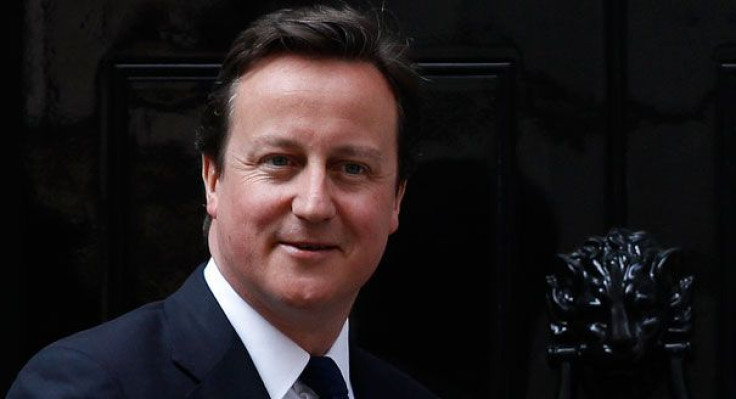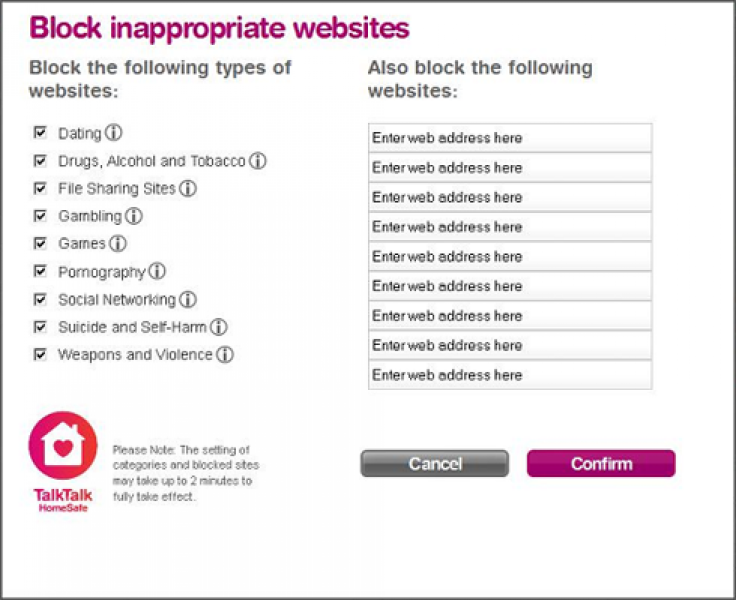UK Porn Filter: Censorship Extends Beyond Pornography, But One ISP Is Fighting Back

U.K. Prime Minister David Cameron's new policy requiring British Internet service providers to install porn filters and their customers to opt in for adult content has come up against resistance from several groups. Cameron said the policy, announced last week, is aimed at combating child porn and the “corroding influences” of sexual content in the U.K., but reports have linked the filters to controversial Chinese company Huawei, critics say that the filters will block much more than just porn, and some ISPs have publicly refused to force the filters on their users.
The Open Rights Group spoke with several ISPs and found that in addition to pornography, users will also be required to opt in for any content tagged as violent, extremist, terrorist, anorexia and eating disorders, suicide, alcohol, smoking, Web forums, esoteric material and Web-blocking circumvention tools. These will all be filtered by default, and the majority of users never change default settings with online services.
One U.K. ISP, TalkTalk, already has “The HomeSafe System,” which was singled out for praise by David Cameron when announcing the new policy. It gives another good idea of the kind of Internet censorship the British government is looking to implement.

More troubling is the revelation that HomeSafe is actually operated by Huawei, a Chinese company that both the U.K. and the U.S. accused of having close ties with the Chinese government. Huawei’s founder, Ren Zhengfei, is a former officer of China’s People’s Liberation Army, and a recent report by the Intelligence and Security Committee said, “the alleged links between Huawei and the Chinese State are concerning, as they generate suspicion as to whether Huawei’s intentions are strictly commercial or are more political.” The U.S. has branded Huawei a threat to national security.
Huawei denies any connection and says it is being unfairly scrutinized for being Chinese. The testing center used to operate HomeSafe is based in the U.K., and Huawei asserts it operates with security and integrity.
ISPs will be able to use any filter system they like, so many may choose not to be associated with Huawei. Others are refusing to impose filters at all.
“Sorry, for a censored Internet you will have to pick a different ISP or move to North Korea,” Andrews & Arnold, a U.K. ISP, said in a statement. “It is not our role to try and censor what you do with the Internet.”
“It is your responsibility to stick to the laws that apply to you. We have no intention of putting in place any censorship systems or using censored transit feeds.”
The company argued that porn filters will not solve the problem of child pornography and will only create new problems -- like slowing down connections and incentivizing underground networks and encryptions that make it even harder to track criminals. The company also noted a potential slippery slope toward censoring nonpornographic material.
But if HomeSafe and the ORG report are any indication, Cameron censoring nonpornographic material that offends more-conservative members of society is already a part of the plan.
© Copyright IBTimes 2024. All rights reserved.












